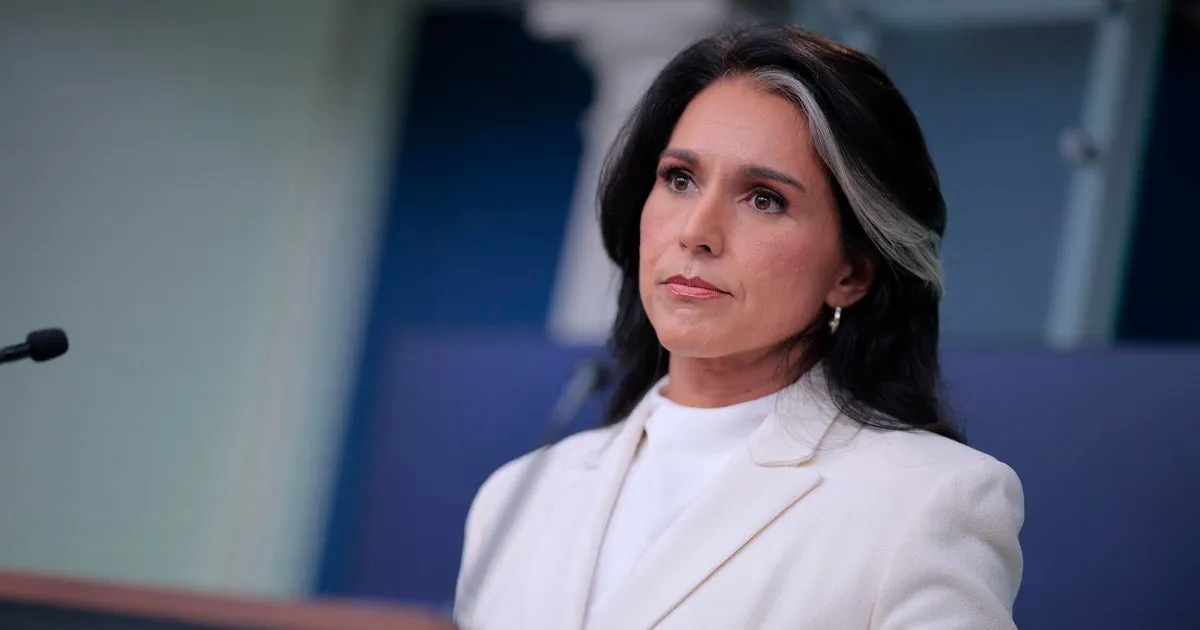
In a significant move, Tulsi Gabbard, the Director of National Intelligence, announced on Tuesday that the Trump administration is revoking the security clearances of 37 current and former national security officials. This decision, shared in a memo on X (formerly Twitter), has sparked considerable controversy.
In her memo, Gabbard accused these officials of engaging in the politicization and weaponization of intelligence for personal or partisan gain. She asserted that they failed to safeguard classified information and did not adhere to professional analytic tradecraft standards. However, the memo notably lacked any evidence to substantiate these serious accusations.
Among those affected is Sam Vinograd, a former assistant secretary for counterterrorism, threat prevention, and law enforcement policy at the Department of Homeland Security. Vinograd, who also contributes to national security discussions for CBS News, has not yet publicly responded to Gabbard's memo.
Many of the targeted officials had previously worked on issues that have been contentious for President Trump, particularly the intelligence community's assessment of Russian interference in the 2016 presidential election. Several of these officials were part of a critical letter signed in 2019, which resurfaced on social media recently, highlighting their dissenting views towards Trump.
This latest action reflects President Trump’s ongoing distrust of career intelligence officials, whom he believes work against his administration's interests. The revocation of security clearances is not a new tactic for the Trump administration; it has previously revoked clearances for high-profile figures such as former President Joe Biden, former Vice President Kamala Harris, and former Secretary of State Hillary Clinton.
Critics of the administration's approach argue that revoking security clearances risks silencing dissenting voices within the intelligence community, which traditionally relies on a wide range of perspectives to formulate assessments. During Trump’s first term, former CIA Director John Brennan also had his clearance revoked, raising concerns about the legality and constitutionality of such decisions.
Mark Zaid, a national security lawyer whose clearance was similarly revoked, condemned these actions as unlawful and hypocritical. He emphasized that the administration's claims of politicization contradict its own practices.
In her defense of the revocation, Gabbard stated that holding a security clearance is a privilege that should not be taken lightly. She remarked on X that those in the intelligence community who betray their oath and prioritize personal interests over public service have violated their sacred trust.
In recent weeks, Gabbard and other Trump administration officials have revisited the intelligence community's 2017 assessment regarding Russian electoral interference, declassifying documents intended to question the legitimacy of these findings. Despite multiple investigations confirming Russia's interference through various means, including a hack-and-leak operation and social media campaigns, President Trump has consistently disputed the assertion that Russian President Vladimir Putin acted to benefit him.
The revocation of security clearances poses challenges not only for current government employees but also for former officials whose private-sector roles may require access to sensitive information. It remains unclear how many of the 37 affected officials still hold or need their clearances for their jobs.
On his first day in office, Trump expressed intentions to revoke clearances from former intelligence officials who had signed a letter suggesting that the Hunter Biden laptop incident resembled a Russian disinformation operation. Additionally, he attempted to revoke the clearances of lawyers at prominent law firms but faced legal challenges from federal judges.
Some individuals targeted in this recent security clearance action were part of Biden's national security team, and many only learned about the revocation through news reports. Two former officials who were on the list have indicated that they are considering legal action, speaking on the condition of anonymity.
This unfolding situation highlights the contentious relationship between the Trump administration and the intelligence community, raising questions about the future of intelligence operations and the integrity of national security assessments.